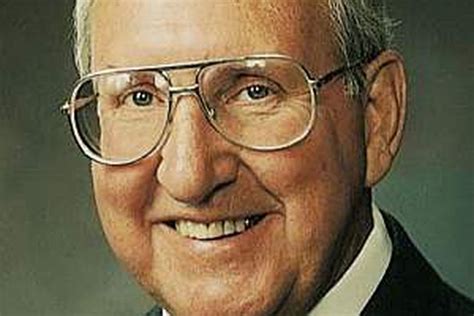A Quote by F. Scott Fitzgerald
An author ought to write for the youth of his own generation, the critics of the next, and the schoolmaster of ever afterwards.
Quote Topics
Related Quotes
It is not difficult to understand why the great God of heaven has reserved these special spirits for the final work of the kingdom prior to his millennial reign.... This generation will face trials and troubles that will exceed those of their pioneer forebears. Our generation has had periods of some respite from the foe. The future generation will have little or none....This is a chosen generation.... I believe today's [Church youth] will lead the youth of the world through the most trying time in history.
If the account given in Genesis is really true, ought we not, after all, to thank this serpent? He was the first schoolmaster, the first advocate of learning, the first enemy of ignorance, the first to whisper in human ears the sacred word liberty, the creator of ambition, the author of modesty, of inquiry, of doubt, of investigation, of progress and of civilization.
I have seen books made of things neither studied nor ever understood ... the author contenting himself for his own part, to have cast the plot and projected the design of it, and by his industry to have bound up the fagot of unknown provisions; at least the ink and paper his own. This may be said to be a buying or borrowing, and not a making or compiling of a book.
Youth is a beautiful dream, on whose brightness books shed a blinding dust. Will ever the day come when the wise link the joy of knowledge to youth's dream? Will ever the day come when Nature becomes the teacher of man, humanity his book and life his school? Youth's joyous purpose cannot be fulfilled until that day comes. Too slow is our march toward spiritual elevation, because we make so little use of youth's ardor.





































